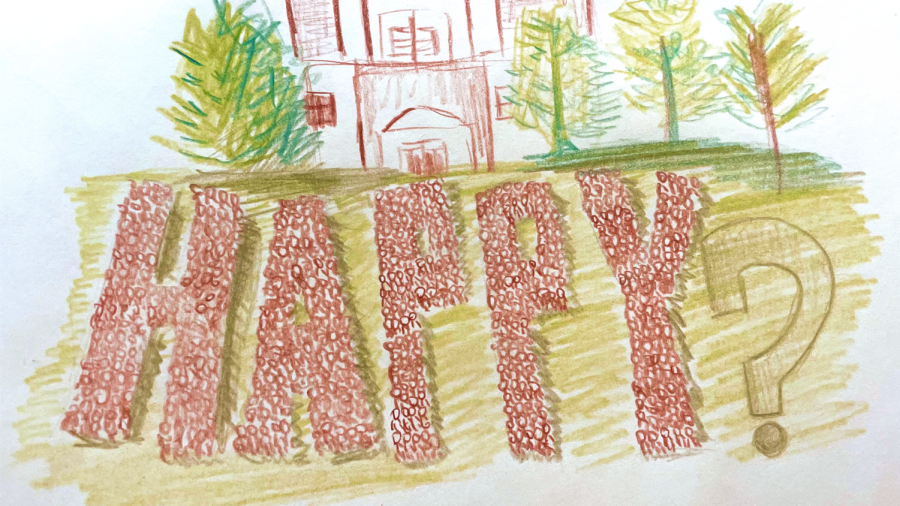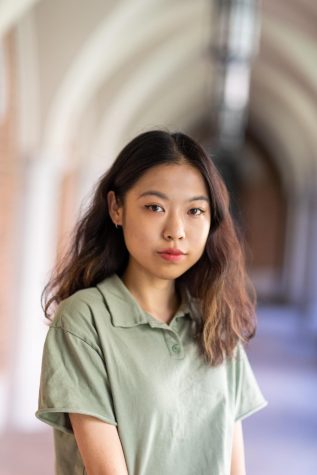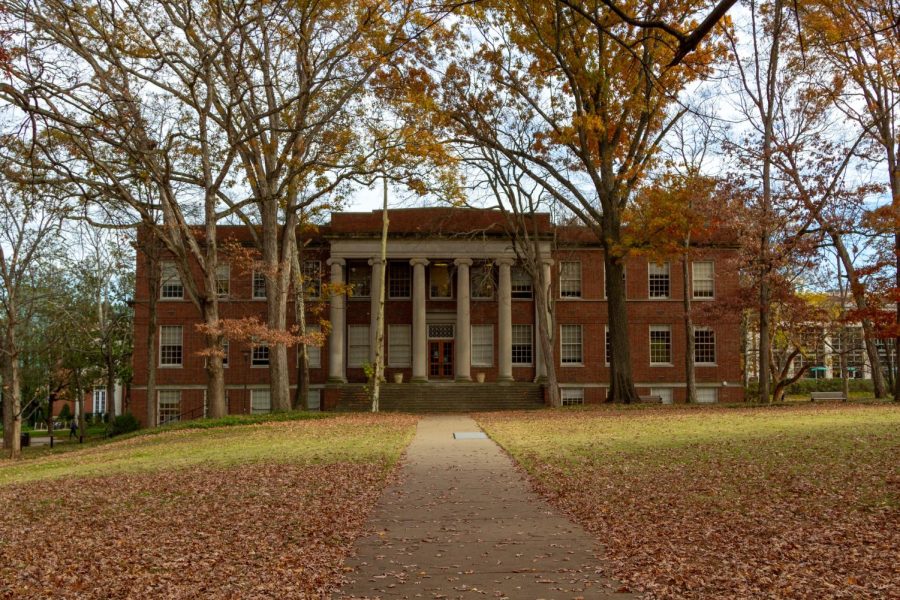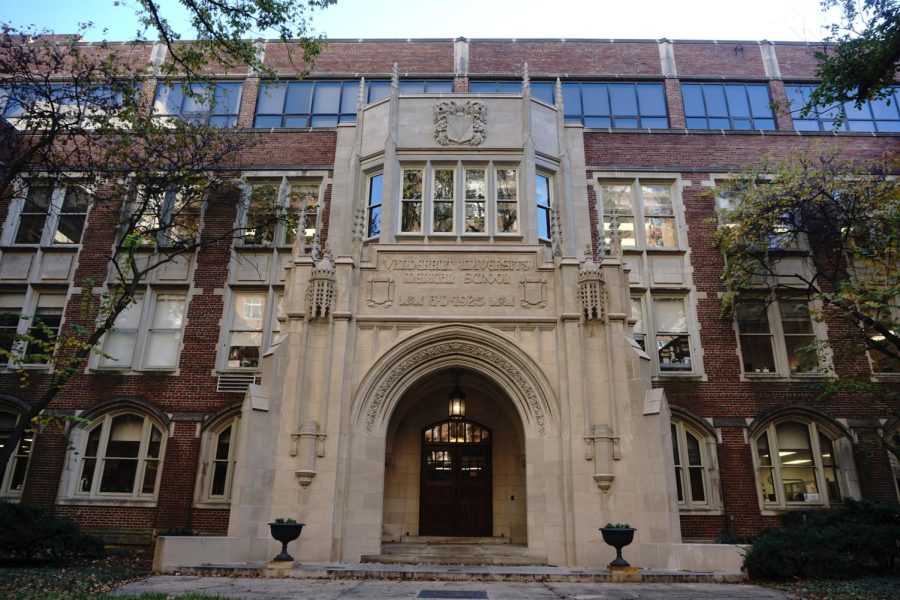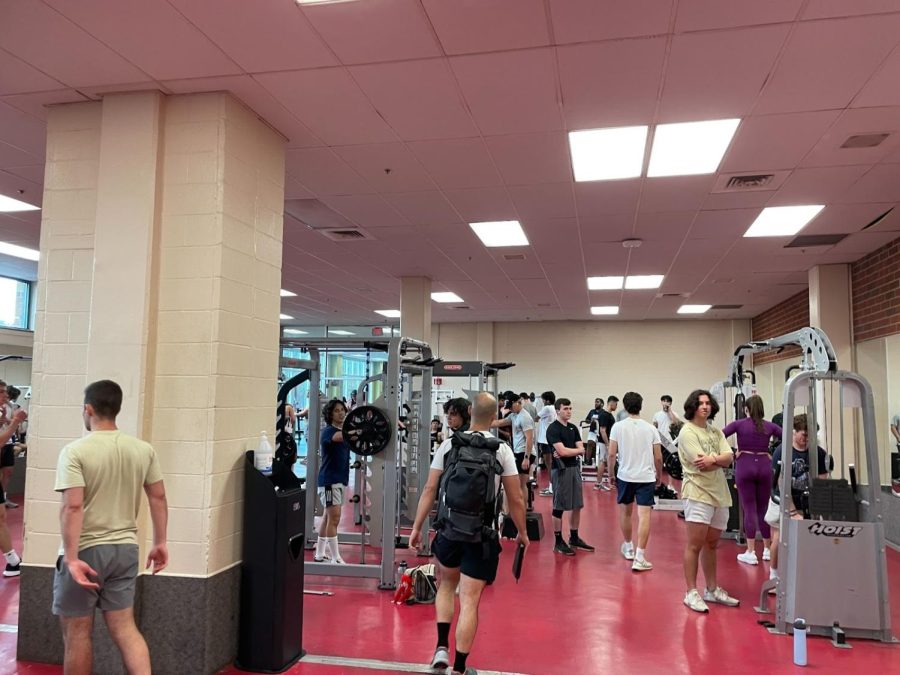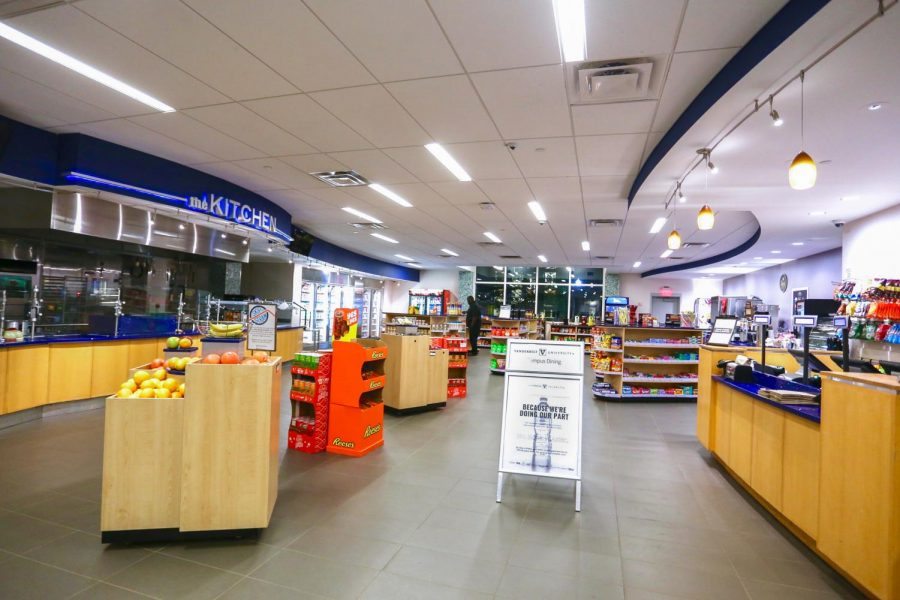In my junior year of high school, as I frantically fine-tuned a list of colleges I was considering applying to, I read everything I could get my hands on about my top choice: Vanderbilt University. I scoured Vanderbilt’s website for any insight about the school and I spent hours watching day-in-the-life YouTube videos made by Vanderbilt students. I also checked where Vanderbilt ranked on sites like U.S. News and The Princeton Review because I thought that objective numbers would convey more than subjective accounts could. One ranking in particular stood out to me more than any other: Vanderbilt boasted (and still does, as of print) the second-happiest student body in the nation. When I thought about where I’d want to spend my next four years, a place where I would be happy and surrounded by happy people sounded ideal. So, after considering this ranking and a number of other factors, I applied Early Decision II to Vanderbilt. Now, as a happy sophomore in college, I have seen that Vanderbilt is not perfect, but I can also see why a lot of students are happy here.
To determine where universities rank in student happiness, The Princeton Review conducts an annual survey in which undergraduates are asked a series of questions about the colleges they attend. In an article explaining how this rating system works, The Princeton Review stated that the average number of student surveys per campus that they receive is 400. Compared to the thousands of students that attend Vanderbilt, this sample size is relatively small, which could lead to inaccuracy. However, this statistic also means that approximately 400 students every year seem to have the same consensus: They are happy at Vanderbilt. Another potential flaw of the survey is that students could interpret the question as if they are happy in the moment or overall at Vanderbilt. There are definitely moments when students feel more stressed and overwhelmed even if they are generally happy. Many factors affect the accuracy of the survey results, but, because the results are compared to those about other universities, the inaccuracies should not affect the accuracy of the overall rankings too much.
The true happiness of Vanderbilt students is difficult to judge. We are taught to ask “how are you?” to be polite and to answer with “I’m good,” even when we’re not.
In 2014, Jay Watson posted a blog on the admissions site that aimed to explain the university’s high student happiness ranking. While the article explores five central concepts, one that I find particularly important to note is his explanation of Vanderbilt’s academic community.
As Watson describes, students say the academic atmosphere at Vanderbilt is more collaborative than competitive or cut-throat. This is not to say that every class at Vanderbilt bears these qualities, but Walton argues, students seem generally willing to help their peers. In my experience, this analysis has been true. Students readily share lab notes and information that our TAs had given that they believe can help others. In the math course I took last semester, we were assigned to math lab groups where we could work with other students on a problem set. This environment did not just encourage collaboration: It required it. One of my favorite parts of the week was attending Monday night math lab meetings because the time was spent laughing and learning from each other. Having something to look forward to every week and a group of amazing people with whom to regularly spend time definitely contributed to my happiness. I saw firsthand that collaborative environments are more conducive to happiness than ones where overachieving competitors duke it out for top grades.
In his 2002 book “Aging Well,” Harvard Medical School professor and author George Vaillant explores the long-term Harvard study of adults and happiness. “The key to healthy aging is relationships, relationships, relationships,” he writes. At Vanderbilt, the many extracurricular activities offered, the four-year on-campus living requirement and the Commons residential model helps foster these close relationships. The 15 residential colleges conveniently place most of the campus’s population within walking distance of one another. When I lived on Commons, I bumped into new people quite frequently and was able to build connections. Some of my favorite memories were watching movies and playing games with friends in our common rooms. When I first set foot on campus, I remember being inundated by smiles and hellos. The environment Vanderbilt students have created – one that focuses on forging new relationships out of new surroundings – lowers stress levels and boosts the spirits of the community at-large.
Vanderbilt never told me to switch my major, nor walk me through adjusting my perspective to find self-growth, but I did have the support of the friends that I have made here.
Going into my first year at Vanderbilt, I hadn’t quite found my niche, and I was happy at moments when something good happened but had little idea how to maintain those positive spirits. This year, however – after switching majors and prioritizing myself – I can say that I am genuinely happy. This is not to say that I am happy 24/7, but, overall, I feel very happy with my life. Did being at Vanderbilt have anything to do with that mindset? Maybe. I feel that Vanderbilt is the right place for me academically. The schoolwork doesn’t feel impossible or entirely unmanageable, but it is challenging enough to make me push myself. I love reading about Vanderbilt alumni who went down my intended path, and the opportunities that Vanderbilt provides make me feel excited about my future.
Vanderbilt never told me to switch my major, nor walk me through adjusting my perspective to find self-growth, but I did have the support of the friends that I have made here. Having kind people to talk to and seek advice from certainly made the process easier. I remember talking to one of my friends on the balcony of my first-year residential college at 1 a.m. about life, careers, love, loss and other topics. Deep conversations like that one helped me to realize things about myself and my life that I would not have been able to realize on my own.
The true happiness of Vanderbilt students is difficult to judge. We are taught to ask “how are you?” to be polite and to answer with “I’m good,” even when we’re not. In a literature course I took last year, my professor asked the class one day: “Are you happy?” Almost no one in the class answered with a straight “yes,” but nobody answered with “no” either. The general consensus was an awkward variation of “I’m okay.” It can often be difficult to classify ourselves as happy or unhappy. If you feel happy some days and sad on others, how do you sum up your feelings in just one word?
Unfortunately, Vanderbilt is not a magical land that will make anyone who steps foot on it happy, which is an impression that The Princeton Review ranking gives. Despite this fact, Vanderbilt has ranked higher in campus happiness levels than other schools year after year. Vanderbilt attracts smart and driven students who also know how to have a good time, and these people create a happy environment. It has the ingredients that make it a place where people can reach happiness, but doing so requires both luck and some work. I have experienced this myself, in my journey at Vanderbilt. Though I am only one person, I can say with absolute certainty that at least one Vanderbilt student is happy, and it is a place where happiness is not guaranteed, but very possible.











